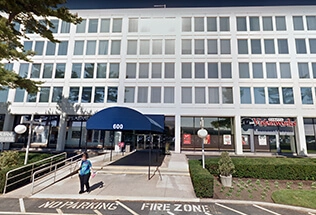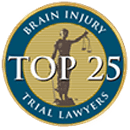Losing someone dear to us deeply shapes our lives. The emotional turmoil that follows can be immense, a mix of feelings that’s tough to make sense of. Often, this path through grief leads us through sadness, introspection, and eventually finding a way to adapt.
However, especially with sudden, tragic losses, this path veers into more challenging psychological territories, like post-traumatic stress disorder (PTSD). And while PTSD is often linked to direct trauma, the shock of suddenly losing someone close can also trigger it. This form of PTSD shows up in unique ways and can significantly affect a person’s life.
As such, this condition requires careful attention, considering not just the emotional impact but also any legal implications that might arise from such a loss.
For those dealing with PTSD from grief, having the right support is crucial. At Schwartzapfel Lawyers, we understand the effects loss can have and are here to help you through this time, personally and legally.
If you or a loved one is seeking personalized guidance to help you through this challenging time, call us now at 516-342-2200 or visit us online to schedule your free consultation today. No matter your situation, we’re here to fight for you!
Understanding PTSD After Losing A Loved One
PTSD is typically characterized by intense, disturbing thoughts and feelings related to a traumatic event. While it’s often linked to experiences like war or violent incidents, PTSD can also emerge in the wake of the sudden death of someone close. The unexpected nature of such a loss can shock the system, causing psychological distress that goes beyond typical grief.
The Link Between Unexpected Death And PTSD
A significant study conducted in 2014 sheds light on this issue. The research found a consistent association between unexpected deaths and elevated risks of new onsets of PTSD, panic disorder, and depressive episodes. This underscores the fact that the manner in which we lose someone can have a profound effect on our mental health.
Symptoms Of PTSD Post-Loss
For those grappling with the death of a loved one, PTSD can manifest in various ways. Common symptoms include but are not limited to:
- Persistent feelings of anger, tension, or being on edge.
- Physical reactions like heart palpitations, sweating, and hyperventilating.
- Experiencing flashbacks or intrusive thoughts about the loved one’s final moments.
- Actively avoiding places, activities, or thoughts that are reminders of the deceased.
- Sleep disturbances, including trouble falling asleep or nightmares.
- Behavioral changes, such as altering routines to avoid reminders of the trauma.
- Distorted feelings of guilt or self-blame related to the event.
- Pervasive negative thoughts and mood changes.
Recognizing these symptoms is the first step toward seeking appropriate care and support. It is also important to consider the legal aspects that may be relevant, especially in cases of wrongful death.
At Schwartzapfel Lawyers, we’re committed to providing comprehensive support to all those in need. Contact us now at 516-342-2200, and allow our award-winning team the honor and privilege of fighting for you!
The Path To Recovery
When faced with the loss of a loved one, the journey towards healing is personal and often complex. For those experiencing PTSD in the wake of such a loss, acknowledging the symptoms is a critical first step on the path to recovery.
It’s important to understand that PTSD is more than just a prolonged period of grief; it’s a distinct psychological condition that requires attention and care.
Recognizing The Symptoms Of PTSD
Knowing about the symptoms of PTSD is one thing — but recognizing them in your life is just as crucial. It involves being aware of the various manifestations of PTSD, which can range from persistent anxiety and sleep disturbances to intrusive thoughts and flashbacks.
It’s essential to listen to your emotional and physical responses following a traumatic loss. These symptoms are not signs of weakness but are, in fact, common reactions to extraordinary circumstances.
Addressing PTSD
If left unaddressed, PTSD can have a profound impact on one’s quality of life. It can affect relationships, work performance, and overall well-being. More importantly, untreated PTSD can lead to long-term psychological issues, making the healing process more difficult.
Seeking help is not just about managing symptoms but also about understanding and processing the trauma in a healthy way.
Early intervention is key in treating PTSD. This could involve therapy, counseling, or, in some cases, medication. Each person’s path to recovery is unique, and finding the right combination of treatments is crucial. In addition to psychological support, exploring legal options can also be a part of the healing process, especially if the death was due to negligence or wrongful actions.
At Schwartzapfel Lawyers, we recognize the critical importance of both emotional and legal support in cases of traumatic loss. Our seasoned team is qualified to guide you through the details of your situation, offering the compassionate and professional assistance you need.
If you’re struggling with PTSD following the loss of a loved one and need support or legal advice, please reach out to us at 516-342-2200 today. No matter your situation, Schwartzapfel Lawyers is here to help and ensure that your rights are protected during this challenging time.
Effective Treatment Options For PTSD
Knowing what treatments are available can give you the confidence to move forward. With this in mind, here are some of the more popular – and effective – ways of helping individuals overcome the struggles of PTSD following the loss of a loved one.
Cognitive Behavioral Therapy (CBT)
Cognitive Behavioral Therapy (CBT) is a powerful tool in treating PTSD. It helps you pinpoint and shift your thoughts and behavior patterns, especially useful when dealing with the aftermath of losing a loved one.
CBT aims to tackle those lingering negative thoughts and feelings of guilt. In so doing, it works to guide you toward reshaping your perspective for healthier coping.
Eye Movement Desensitization and Reprocessing (EMDR)
Eye Movement Desensitization and Reprocessing (EMDR) is another effective treatment for PTSD. This therapy uses the patient’s rhythmic eye movements to dampen the pain that comes with emotional memories of traumatic events from the past.
EMDR has been proven to help many individuals with PTSD process their trauma in a way that reduces its ongoing impact.
Medications
In some cases, medications may be used alongside therapies like CBT and EMDR. These can include antidepressants, anti-anxiety medications, or others that help manage symptoms of PTSD. It’s important to consult with a healthcare professional to determine the most appropriate treatment plan.
Know Your Rights
When PTSD is the result of a wrongful death claim, knowing your legal rights and options is critical. Handling the legal aspects of such a situation can be complex, especially when you are dealing with the psychological impact of your loss.
In cases of wrongful death, the legal system can provide a pathway to financial compensation and justice, which can be an integral part of the healing process. At Schwartzapfel Lawyers, we can provide the legal support and guidance you need during such difficult times.
Our seasoned personal injury team understands the ins and outs of wrongful death cases and PTSD claims. And so, if you’re experiencing PTSD due to the wrongful death of a loved one, we invite you to reach out.
But you shouldn’t wait, as your window to file a claim and recover financially may soon close forever. To keep that from happening, act now and call Schwartzapfel Lawyers at 516-342-2200 to explore your options and protect your financial future.
DISCLAIMER: Nothing on this page should be considered legal advice. You should seek the appropriate counsel your situation requires. For more information, call 516-342-2200 now!
Sources:
Schwartzapfel Lawyers, P.C. | Fighting For You
Post-traumatic stress disorder (PTSD) – Symptoms and causes | Mayo Clinic
The Burden of Loss – PMC | NIH
Cognitive Behavioral Therapy (CBT): What It Is & Techniques | Cleveland Clinic
Eye Movement Desensitization and Reprocessing (EMDR) for PTSD | National Center for PTSD


















